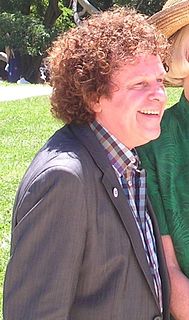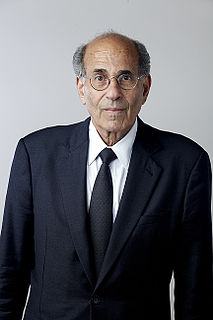A Quote by John Updike
It seems to me the book has not just aesthetic values - the charming little clothy box of the thing, the smell of the glue, even the print, which has its own beauty. But there's something about the sensation of ink on paper that is in some sense a thing, a phenomenon rather than an epiphenomenon. I can't break the association of electric trash with the computer screen. Words on the screen give the sense of being just another passing electronic wriggle.
Related Quotes
That's what I love about writing. Once you get the words down on paper, in print, they start to make sense. It's like you don't know what you think until it dribbles from your brain down your arm and into your hand and out through your fingers and shows up on the computer screen, and you read it and realize: That's really true; I believe that.
I am very grateful to the electronic world for making my life easier, but there is something about holding a book - the smell and the world of association. Even when e-books are perfected, as they surely will be, it will be like being in bed with a very well-made robot rather than a warm, soft, human being whom you love.
When you look at the whole explosion of the Internet, the decline of print journalism, there are all of these plus-or-minus ramifications, and you have to work it out. The great thing about books is that you have a tactile thing that's there. You can download this or download that, but how long do you want to be staring at a screen for the rest of your life? You've got to have some kind of proper interface for people that's not about the screen.
I don't even own a computer. I write by hand then I type it up on an old manual typewriter. But I cross out a lot - I'm not writing in stone tablets, it's just ink on paper. I don't feel comfortable without a pen or a pencil in my hand. I can't think with my fingers on the keyboard. Words are generated for me by gripping the pen, and pressing the point on the paper.
I knew that I was writing for an American audience and that if I sold foreign rights, they would retranslate the book to make it make sense to that language. But one thing that was really important to me was not to italicize any of the words in the languages that were in the stories, because I feel like those foreign words felt just as important and integral to the story as everything else, so I wanted it all to just exist as its own thing.







































